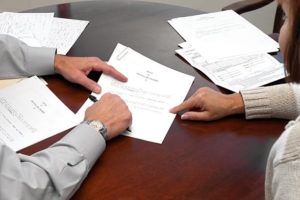Beneficiary Agreements, Disclaimers, and Other Estate Spoilers
A testator generally makes a will with the specific intent that the testator’s wishes will be honored after death. However, for practical and legal reasons, a testator may be limited in one’s ability to exercise complete “deadhand control” of one’s assets after death.
Florida law provides beneficiaries of a will with the ability to enter into a written agreement whereby the beneficiaries may agree among themselves to alter the interests, shares, or amounts to which they are entitled, regardless of how a testator stated that assets should be distributed upon death. The personal representative of an estate is required to abide by the terms of a beneficiary agreement.
A beneficiary can also simply disclaim one’s interest in any property which such beneficiary might inherit. Under Florida law, a disclaimer must be in writing, and any disclaimer which affects real property must be made with the same formality as a deed and must be recorded in the official records of the county where such real property is located. A person who properly executes a disclaimer is treated as having predeceased the testator or decedent. A well-crafted estate plan can address this possibility.
A trust is a more effective method of controlling and administering one’s estate and assets after death, but even a trust can be subject to alteration by agreement between beneficiaries and trustees. As with a will, a beneficiary may disclaim interest in trust property. Additionally, a trust may be modified at any time upon the unanimous agreement of the trustee and all qualified beneficiaries, after the settlor’s death. In other words, even irrevocable trusts can be modified by agreement of the beneficiaries and trustee. In modifying the trust, the parties may amend or change the terms of the trust, including terms governing distribution of the trust income or principal or terms governing administration of the trust or terminate the trust in whole or in part.
Note that the statue allowing for modification of an irrevocable trust does not apply to any trust created before January 1, 2001, nor to any trust created after December 31, 2000, unless the terms of the trust expressly authorize nonjudicial modification (or unless the trust violates the rule against perpetuities).
The experienced attorneys at the Elder Law Center of Kirson & Fuller can assist you in drafting a will, trust, and other documents and create and estate plan that meets your needs, effectively addresses your wishes, after death, and tackles unknown but potential circumstances regarding your beneficiaries. Contact the Elder Law Center of Kirson & Fuller today at 407-422-3017 for a consultation.
Written by: Christian Fahrig


